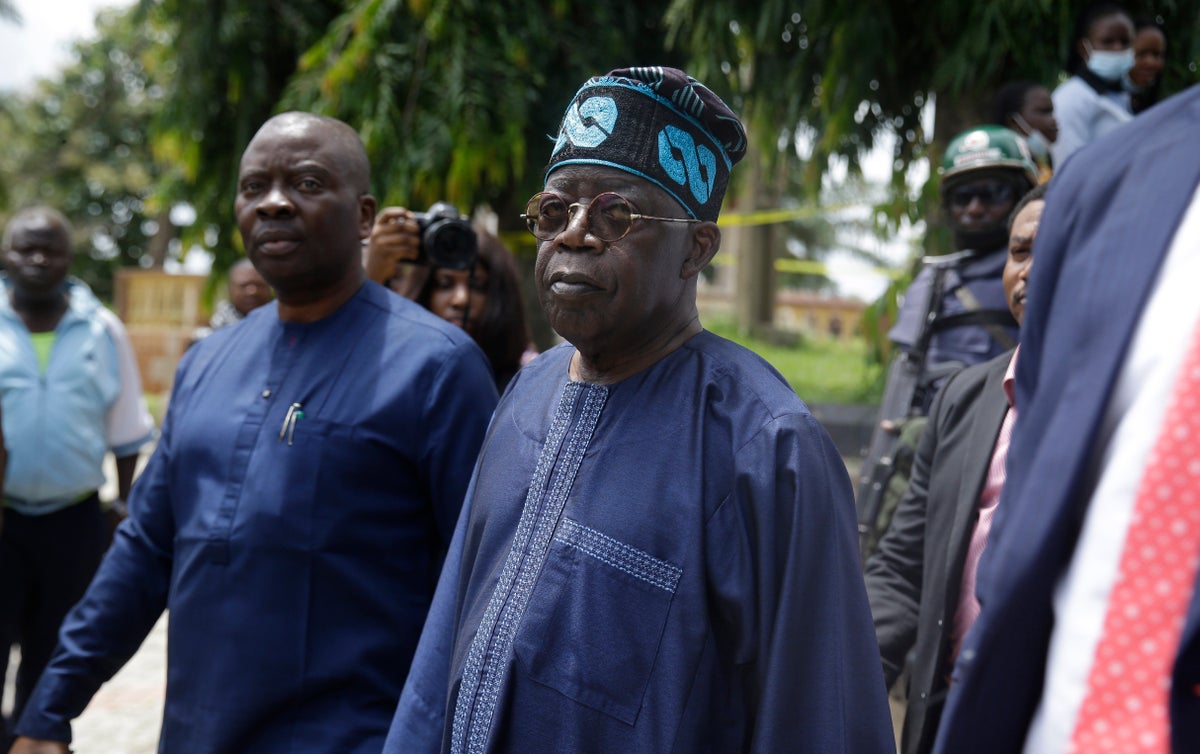
A former governor of Lagos, Nigeria's largest city, has been nominated to be the ruling party's presidential candidate in next year's presidential election.
Bola Tinubu, widely referred to as the “godfather” of Lagos because of his influence in the southwestern state which he governed from 1999 to 2007, polled a majority of the votes on Wednesday at the convention of the All Progressives Congress party. More than 2,300 delegates voted in the convention held in Abuja, the nation's capital.
“I have the experience. I led the transformation of Lagos from a dangerous, unwelcoming place in 1999 to a clean, safe and vibrant place and the fifth largest economy in Africa today,” the 70-year-old Tinubu told delegates before voting started.
“I vow to do everything possible to ensure justice and forever erase terror from our land,” he said, days after an attack on a church in southwestern Nigeria killed more than 20 people.
The only female candidate among the 23 aspirants withdrew before the vote. Nigeria's political world remains male-dominated and women rarely make it to top positions.
The Nigerian presidential election being held in February 2023 may be a two-horse race between Tinubu and Atiku Abubakar, who again clinched the nomination of the Peoples Democratic Party. Abubakar, a 75-year-old former vice president, received 41% of the votes in the 2019 election that he lost to current President Muhammadu Buhari.
Buhari will leave office next year after finishing his second term.
Attending the convention Wednesday, Buhari asked delegates to vote for the aspirant "with the best chances of securing victory” for the party. Buhari and Nigeria's ruling party have been accused by critics of failing in their promises to end the country's prolonged security crisis and to improve its economic performance.
Nigeria — Africa’s most populous country with 206 million people and its largest economy — is grappling with an unprecedented 33% unemployment rate and a 40% poverty rate, according to the latest government statistics. For more than 10 years it has battled an insurgency in the northeast by Islamic extremist rebels in which an estimated 35,000 people have died and millions have been displaced. Violent instability has spread to the northwest in a conflict between herders and farmers and to the south where there is a separatist movement.
Next year’s election promises to be “the battle for the soul of the country,” said Idayat Hassan, who leads the West Africa-focused Center for Democracy and Development. “It is different from all (previous) elections considering the challenges confronting the country,” added Hassan.
As Tinubu is a Muslim from Nigeria's south, he is expected to choose a running mate who is a Christian from the north, maintaining a long-established political strategy in Nigeria, which is divided along religious and ethnic lines.







